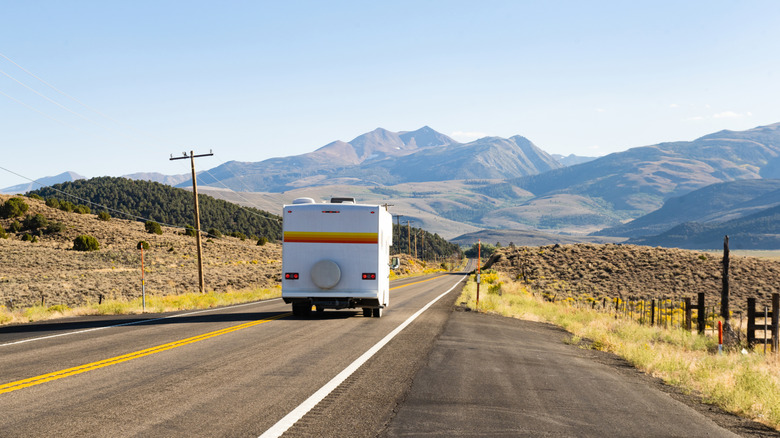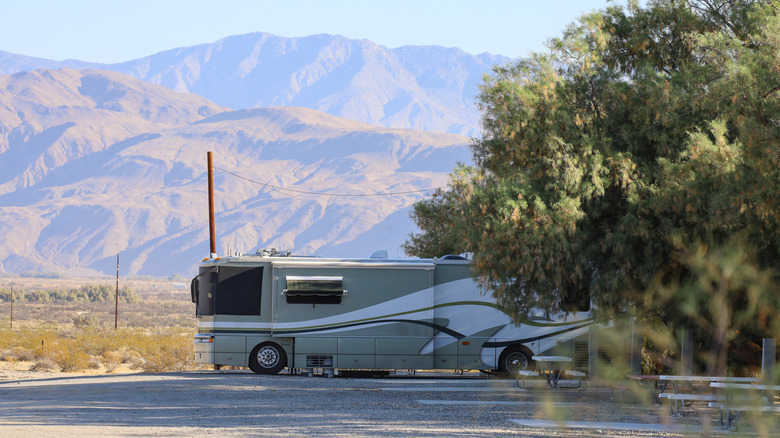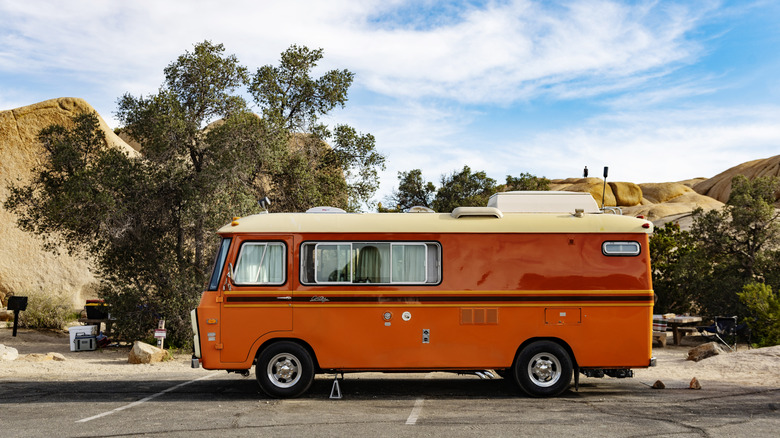Is California Actually Banning The Sales Of RVs? Here's What You Need To Know
Vanlife lovers know California has some of the best spots for RV camping around — which is why new emissions regulations have had RVers wondering if the fun is over. But let's be clear: No, California is not outright banning RV sales. However, these new regulations are making it much harder to sell and register certain types of motorhomes starting in 2025.
At the center of the controversy is the California Air Resources Board's (CARB) Advanced Clean Trucks (ACT) regulation, which requires manufacturers of medium and heavy-duty vehicles (anything over 8,500 pounds) to sell an increasing percentage of zero-emission vehicles (ZEVs) each year. While the rule is meant to target commercial trucks, it also affects some larger RVs and motorhomes, as many of them are built on the same type of chassis.
Unfortunately, there aren't many fully electric RV chassis options on the market. Because of this, some manufacturers have pulled gas and diesel motorhomes from California dealerships — not because they want to, but because they can't meet the standards. While California has said RV companies can buy ZEV credits to comply with regulations, the RV industry argues that it's too expensive. So while the state isn't banning RVs, this rule is creating a situation where new RVs, especially larger ones, are becoming hard to find.
Which RVs are affected by California's ACT regulation?
The ACT regulation impacts all new RVs built on heavier chassis — think Class A, Class C, and some Class B camper vans. Smaller trailers and towables are still fine, and the used RV market for vehicles with at least 7,500 miles on the odometer is still fair game. That's not much in the world of RV mileage, so it's a loophole that's keeping inventory of like-new vehicles moving, for now.
For buyers, there's also the option of buying out-of-state. The rules don't apply to registrations, only sales. However, if you're trying to register an out-of-state RV with less than 7,500 miles, you could run into some headaches, as this is a gray area. Your best bet is to talk directly with your RV dealer for more guidance. But take it from us — do some research first on how to choose the right size RV for your needs. Bigger rigs might look impressive, but can be tricky to maneuver, and aren't always the best fit for off-grid or national park adventures.
Bottom line: there's no need to panic. Just plan ahead, ask questions, and know that used RVs and trailers are still widely available, even as new gas-powered models face tougher roadblocks. And with several manufacturers working on electric RV prototypes, a greener future for vanlifers may be closer than we think.
What's next for RVers in California
The RV industry is in ongoing discussions with CARB to find a solution — either an exemption or extended deadline has been suggested. This is especially considering several other states have implemented similar rules, including some home to the best road trip routes in America, like New York, Oregon, and Washington.
Some states are already making headway on these discussions. For example, New York introduced legislation to delay the deadline — and not just because of campers. Large vehicles such as public buses and school buses are involved too. Massachusetts and Maryland also have legislation being considered to delay the change, and Washington has introduced legislation to repeal it.
In the meantime, RVers in California can still travel, camp, and road trip like normal. They're not coming for the RV or motorhome in your driveway. But if you're shopping for a new one in 2025 or thinking about buying in the future, you may find this rule leaving you with fewer options — at least until the industry catches up with ZEV technology or rules change. For the latest detailed information, visit the RV Industry Association's website, which is issuing updates on all the moving pieces.


